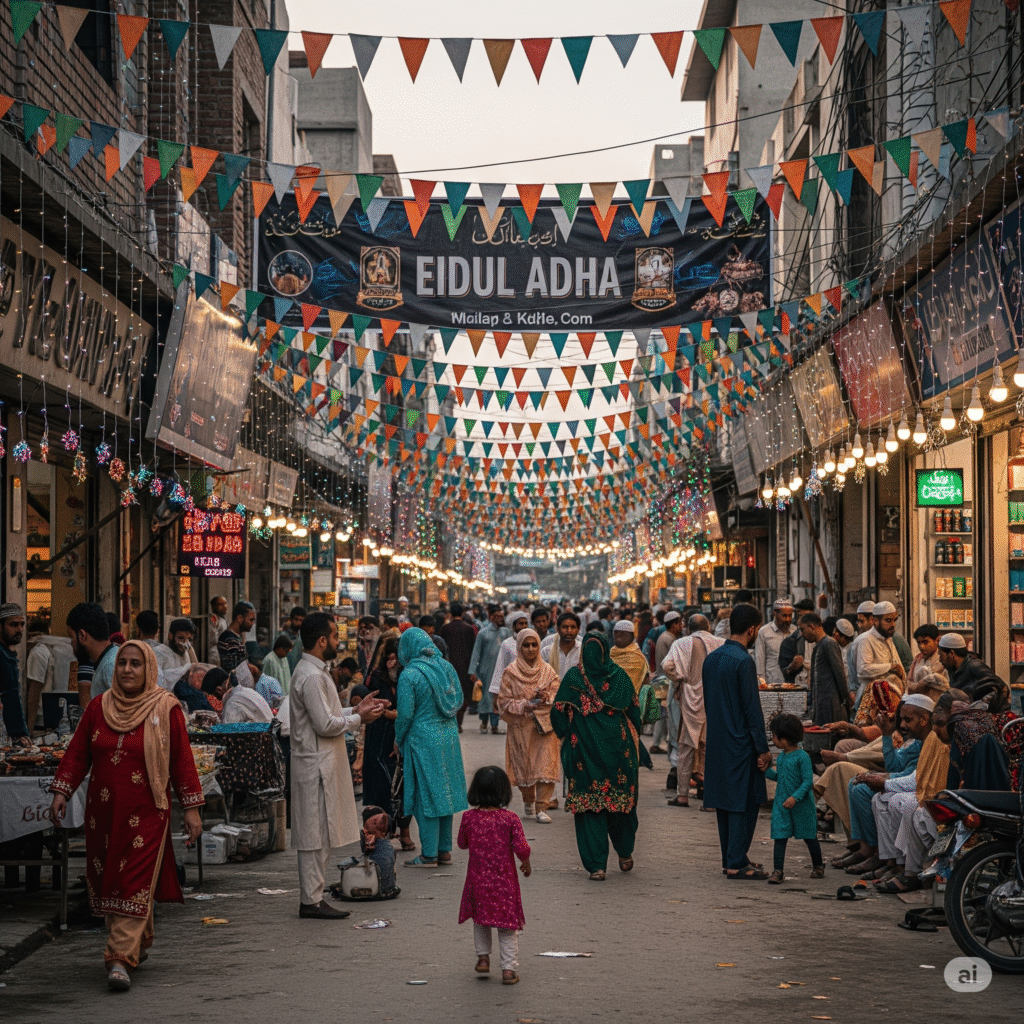
Pakistan’s Eid ul-Adha: Anticipated Date and Importance
In Pakistan, Eid ul-Adha is one of the most eagerly awaited religious holidays, particularly for kids, who eagerly await the celebrations. Early forecasts indicate that Pakistan is expected to commemorate this significant Islamic holiday on Saturday, June 7, 2025.
It is crucial to remember that the official Ruet-e-Hilal Committee, Pakistan’s moon-sighting body, will provide the last word on the precise date. The final date for Eid ul-Adha will not be formally announced until the moon for the Islamic month of Dhul-Hijjah has been sighted, which is how this committee has traditionally done it.
UAE Moon Sighting Predictions
Additionally, early moon-sighting predictions for the United Arab Emirates (UAE) have been provided by astronomers. The crescent moon that signifies the start of Dhul-Hijjah is anticipated to be visible on the evening of May 27, 2025, according to the Emirates Astronomy Society.
This astronomical estimate suggests that Eid ul-Adha will be celebrated in the United Arab Emirates on Friday, June 6, 2025, since Dhul-Hijjah is expected to start on May 28.
It’s critical to realize that these forecasts only offer broad timescales, and that actual dates may fluctuate from nation to nation due to variations in moon visibility brought on by geographic locations. For this reason, Eid may be observed on different days in different nations worldwide.
Eid ul-Adha is anticipated to take place on June 6 in the United Arab Emirates and June 7 in Pakistan.

The Importance of Eid ul-Adha for Spirituality
Muslims all throughout the world have a special place in their hearts during Eid ul-Adha, also called the Festival of Sacrifice. Along with Eid ul-Fitr, which signifies the conclusion of Ramadan, it is one of the two main Islamic holidays.
Eid ul-Adha honors Prophet Ibrahim’s (Abraham, peace be upon him) unshakable faith and loyalty, as he was prepared to sacrifice his beloved son in response to God’s instruction. God substituted a ram for his son just as he was ready to carry out this holy command, indicating that it was a test of faith rather than a material sacrifice.
This stirring tale serves as a spiritual reminder to Muslims of the value of faith, trust, and obedience as well as a sign of total surrender to Allah’s will.
The Qurbani (Sacrifice) Ritual
The custom of animal sacrifice, or Qurbani, is central to Eid ul-Adha. According to Islamic law, Muslims worldwide slaughter animals including goats, sheep, cows, or camels on this day.
This practice is highly significant and goes beyond tradition. It upholds the principles of humility, compassion, and communal well-being while also symbolizing submission to God, as exemplified by Prophet Ibrahim.
The meat from the sacrificed animal is separated into three equal portions:
The family keeps one-third.
Friends and family receive one-third.
The needy and impoverished receive a third.
The attitude of sharing and social responsibility is reflected in this liberal distribution. Muslims are urged by Eid ul-Adha to keep in mind the less fortunate and to make sure that everyone can enjoy the festivities, regardless of their financial situation.

A Day of Unity, Gratitude, and Prayer
Special Eid prayers are held in mosques or open spaces at the start of the day, drawing sizable crowds to thank Allah for His blessings. Typically, the sermon discusses the lessons learned from Prophet Ibrahim’s life, the value of sacrifice, and Muslims’ obligation to treat others with charity.
Families go home after the prayers, and the sacrifice is made. Gatherings, feasting, and visiting family members occupy the remainder of the day. As children play and adults spend time with loved ones, the smell of freshly prepared meat dishes fills homes, and happiness permeates the atmosphere.
Eid ul-Adha is also a time when a lot of people give food, clothing, and cash to charity, which strengthens the community’s values of solidarity and compassion.
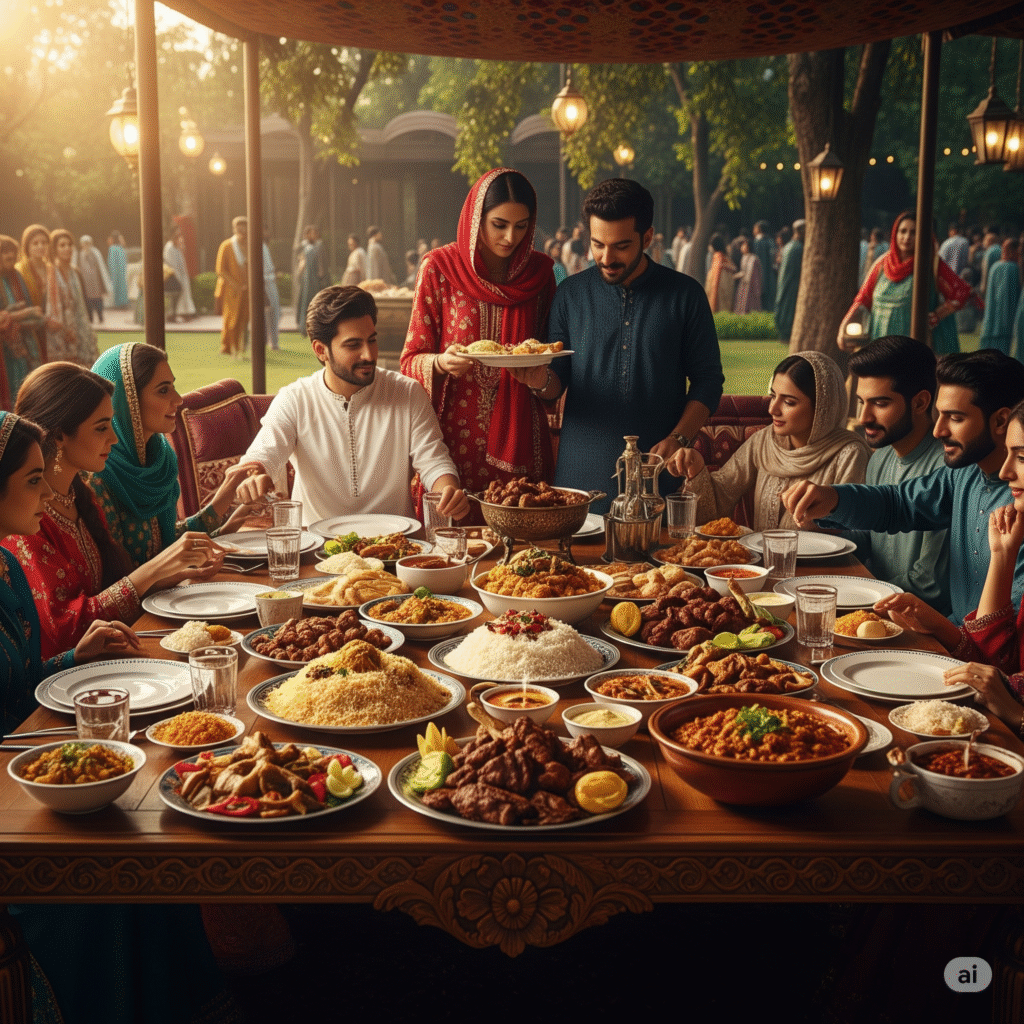
Contemporary Holidays and Customs
While preserving the fundamental Islamic customs, Eid ul-Adha celebrations have changed significantly in the modern world. Among the contemporary features are:
People who live overseas or are unable to undertake the ceremony personally might use online Qurbani services to arrange for their animal sacrifice through respectable organizations.
Families share their Eid celebrations, meat dishes, and attire on social media to keep in touch with friends and family who live far away.
eco-friendly festivities, when people are more cognizant of the need to treat animals humanely, practice good sanitation when killing them, and cut down on food waste.
The festival’s core is still firmly rooted in tradition and profoundly spiritual, even with all the contemporary additions.
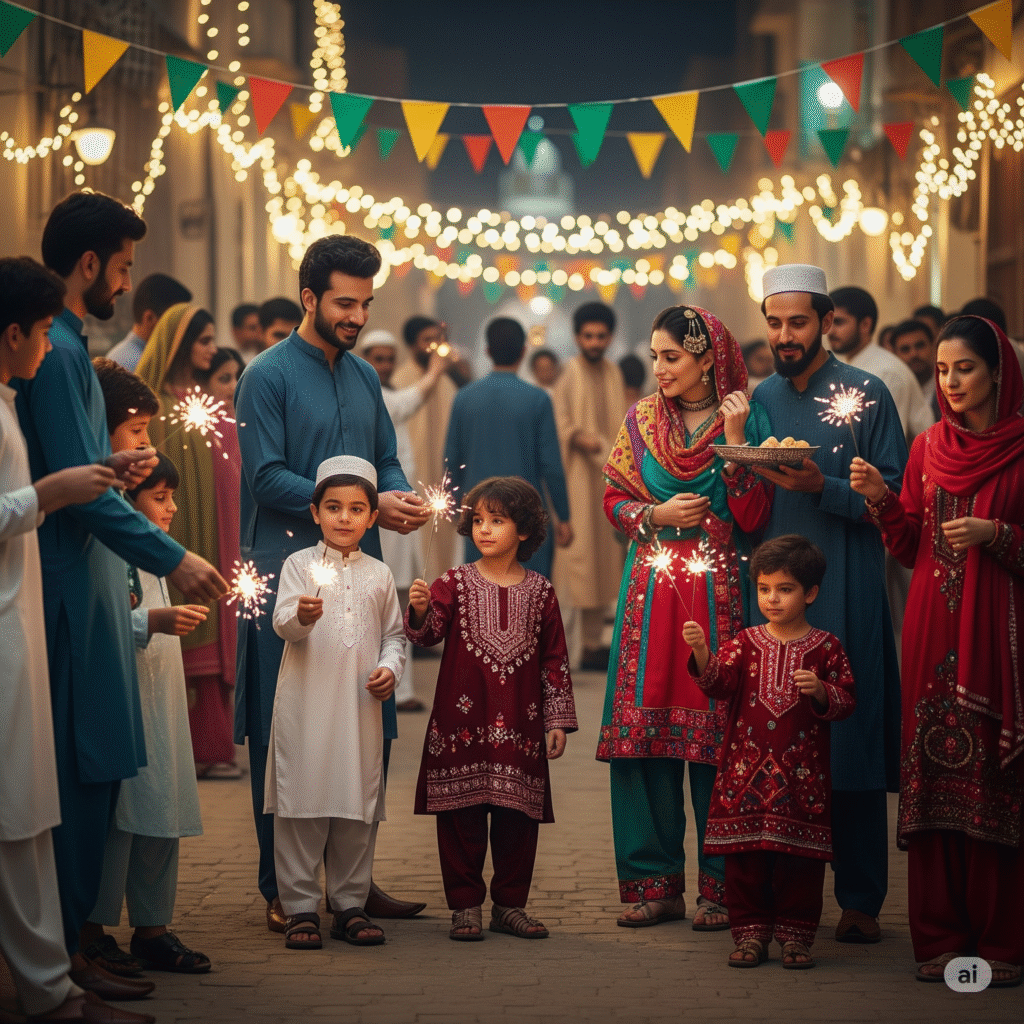
Eid ul-Adha: Beyond a Simple Festivity
Although Eid ul-Adha is a time for celebration, food, and joy, its true meaning is a call to put faith above material possessions. Muslims use this time to consider their relationship with God, their social obligations, and their responsibility to assist those in need.
Eid ul-Adha encourages everyone to live with compassion, humility, and charity, whether it be by spending time with loved ones, praying for blessings, or just providing meat to a hungry neighbor.
Excitement is growing in households throughout Pakistan and beyond as we await the moon sighting and the date’s definitive confirmation. In addition to customs, Eid ul-Adha offers a potent spiritual message that endures beyond generations.
Let’s get ready to celebrate it with grateful souls, open hearts, and helping hands.
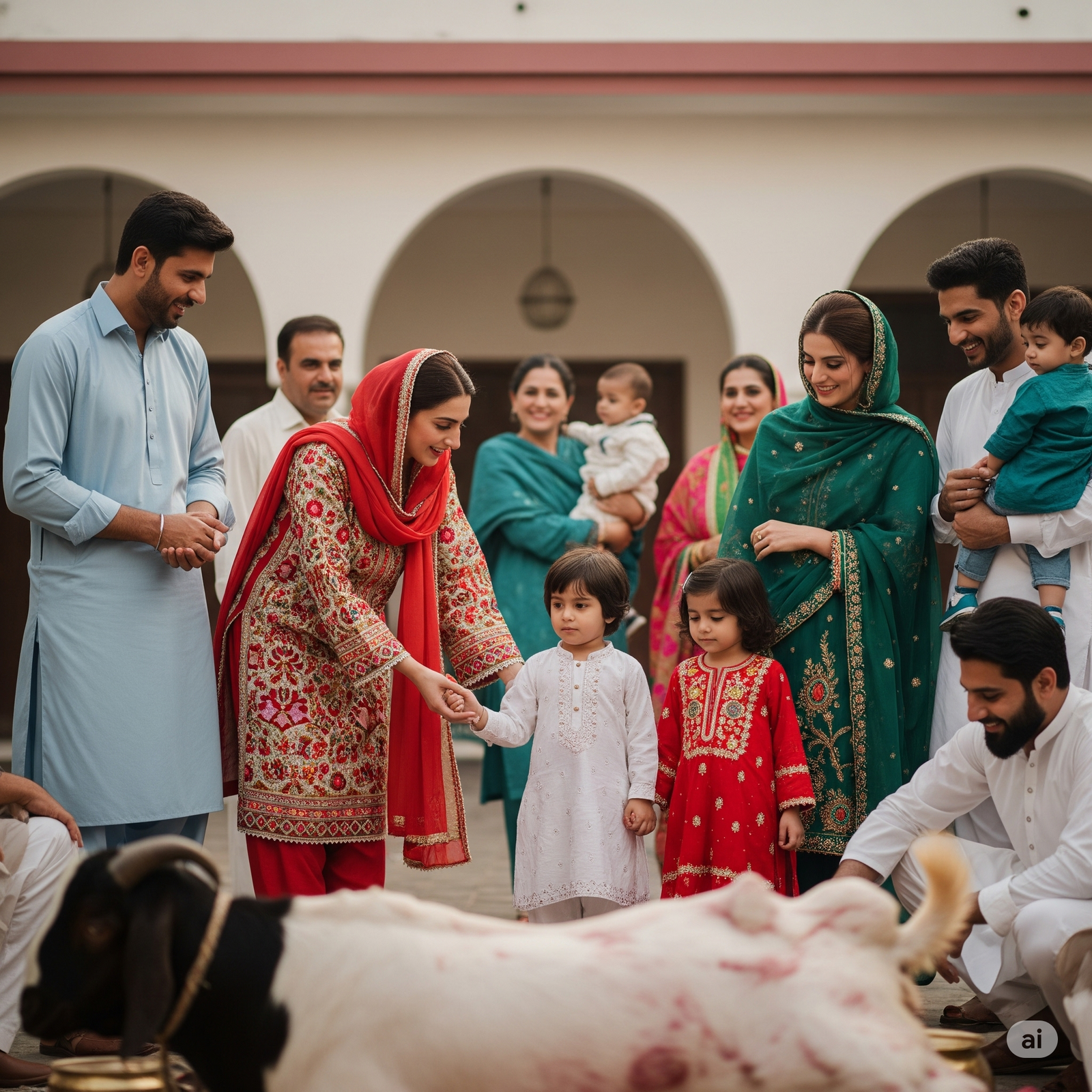

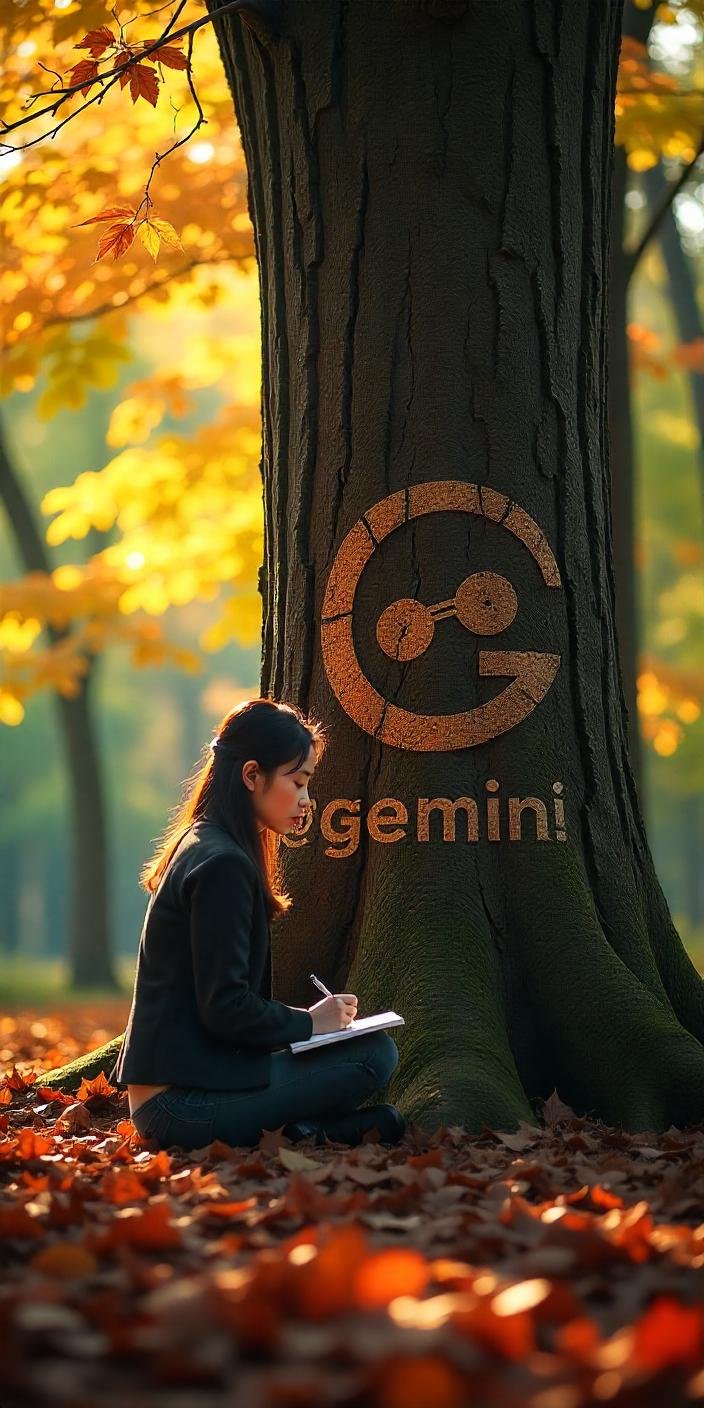








Leave a Reply